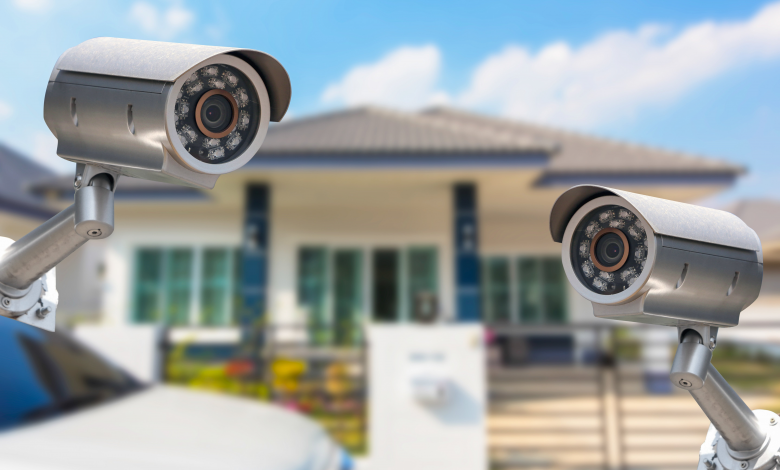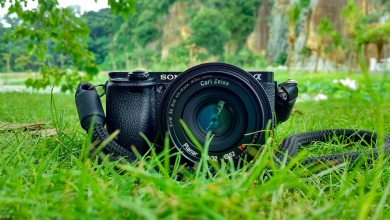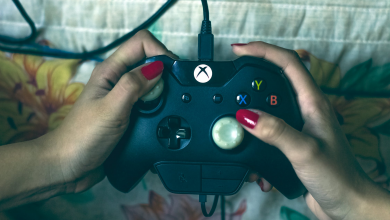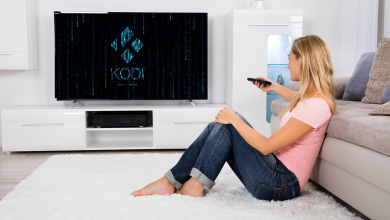12 Best Home Security Systems in 2022

Are you looking for the best home security systems to buy in 2022? We have brought suggestions for the Best Home Security Systems to allow you to select the plan that protects you and your family and doesn’t disturb your budget. Let’s look at the list of the Best Home Security Systems of 2022:
12 Best Home Security Systems
Top Home security companies are here:
1. SimpliSafe
SimpliSafe, our top-rated home security system overall and Best Home Security System of 2022, is simple to set up, operate, and maintain. And social security SimpliSafe home security is what its name implies: an easy-to-install, easy-to-use security system that can successfully secure your home.
PROS:
- You have the option to cancel at any time.
- Feature of a secret-alert
- A large number of sensors are available.
CONS:
- For remote features, a $25 plan is required.
- Home automation capabilities are limited.
2. Vivint Smart Home
Vivint Smart Home, a feature-rich, wireless home security system that requires professional installation after an optional free home consultation, is tied for the No. 2 home security system of 2022. Vivint is a high-end home security system with the capacity to incorporate a wide range of smart-home devices best home security service system.
PROS:
- Installation by a professional using top-of-the-line equipment
- All of your smart home and security devices are managed in one app security cameras.
- An upfront equipment package means no need for a long-term commitment.
CONS:
- When compared to competitors, it is relatively pricey.
- For DIY systems, month-to-month pricing is not available.
- Remote access and use of the mobile app necessitate professional monitoring.
3. Frontpoint
Frontpoint is a low-cost DIY home security system with professional-grade equipment that’s simple to set up. And Frontpoint is a wonderful option because of its low prices and professional-grade equipment, as well as the fact that it does not require you to sign a long-term contract best home security system with cameras.
PROS:
- Installation is simple.
- A large number of sensors are available.
- Compatibility with third-party security devices is excellent.
CONS:
- Basic wiring and mounting abilities are required for some equipment.
- For video and home automation, an expensive plan is required.
4. Link Interactive
Link Interactive offers a comprehensive security solution with Z-Wave-compatible home automation systems. And Link Interactive should be on your shortlist if you’re looking for a smart-home-compatible system that can be modified over the phone and doesn’t require a contract if you pay for the equipment upfront.
PROS:
- Fire monitoring is included in the affordable, professional monitoring.
- If you pay for the equipment in advance, there is no need for a contract.
- You can choose from various contract terms if you decide to finance your equipment.
CONS:
- Payment of 75% of the contract’s outstanding balance is required for cancellation.
- A $200 upgrade is recommended for the control panel, which includes some basic equipment.
5. Ring Alarm
Ring Alarm is a wonderful alternative for individuals who want a ring security camera -centric system without a high monthly cost, with a wide range of cameras and the least priced professional monitoring plan among the systems in our recommendations. And Ring Alarm is a solid alternative for a simple best DIY home security solution that offers a wide range of cameras and can interact with various smart home devices.
PROS:
- For about $20 per month, you can have monitoring and video subscription.
- Installation is simple.
- Friendly to the user
CONS:
- The door sensor is quite large.
- Device selection is limited.
- An alarm’s video or photographs are not visible to the monitoring center.
6. Cove Security
Cove Security provides the convenience and cost of a security system while also including critical features of a professionally monitored system. And Cove Security could be the appropriate fit for you if you’re searching for a low-maintenance home security system focusing on expert monitoring ring home security.
PROS:
- Discounts are frequently offered.
- A system that is simple to utilize
CONS:
- Many competitors provide more features and personalization possibilities.
7. Blue by ADT
ADT home security blue by social security ADT is a mobile-controlled DIY security system with ADT’s decades of home security experience and well-regarded 24/7 professional monitoring. And Blue by ADT is a reliable DIY home security system backed by the industry’s most experienced home security company and a vast network of monitoring centers.
PROS:
- There are numerous customizing possibilities available.
- Wireless technology with a long-range
CONS:
- Many folks don’t need or want something as complicated as this.
8. Abode
Abode is a full-featured home security system that does not require a monthly subscription. Also, Abode is a fantastic home security system that also functions as a powerful home automation platform, allowing you complete control over your house.
PROS:
- A wide range of essential security equipment is available.
- Monitoring is provided for three and seven days.
- The backup data is stored in the hub.
CONS:
- Basic sensors are a little pricey.
- In the base package, there is no keypad.
- There is no video doorbell or exterior camera.
9. ADT Security
ADT Security is the nation’s oldest and most experienced home security provider. It also features the country’s largest monitoring network and a large array of outstanding equipment. ADT is a fantastic choice if you want home security services from one of the market’s largest, most experienced players and are willing to pay a premium for it.
PROS:
- Millions of clients and a long history
- The world’s largest monitoring network
- Guaranteed for six months
CONS:
- Until a house visit, the cost is unknown.
- Sales methods that are aggressive
- Early contract termination carries a hefty penalty.
10. Brinks
Brinks Home Security offers a vast assortment of home security and automation gadgets, as well as home security with reasonably priced equipment. And Brinks Home offers a solid security solution with smart-home features if you don’t mind signing a three-year contract best home security camera.
PROS:
- A large number of sensors are available.
- Professional installation or do-it-yourself
- A network of monitoring centers
CONS:
- A three-year contract with stipulations
- Only dealers can do home consultations.
- Dealers may be able to charge extra.
11. Xfinity Home
Xfinity home security is a full-featured home security system that integrates with other Xfinity Home services like cable TV and the internet. An Xfinity Home security system is a terrific option for current Xfinity subscribers, but it offers fewer benefits for others.
PROS:
- Customers of Xfinity get discounts.
- Core security equipment that the company owns
- A single firm provides all home technology.
CONS:
- Prices may change at any time.
- There is no video doorbell.
12. Scout Alarm
Scout Alarm is a simple, easy-to-use home security system for consumers who only require minimal protection. Also, Scout could be an excellent option if you want a simple system with home automation features and low-cost monitoring home security cameras.
PROS:
- There is no contract.
- Exceptionally adaptable
CONS:
- There is no video doorbell or exterior camera.
- The range is about 125 feet.
- Some motion detectors are incompatible with pets.
Is it necessary for me to invest in a home security system?
Pros:
- Can deter intruders wireless home security cameras
- It can assist with filing a police report, especially if an event is captured on film
- Can get you a homeowners insurance discount outdoor home security cameras
- It gives you peace of mind.
Cons:
- Installation can be time-consuming and costly;
- Many businesses demand a monthly monitoring fee;
- A determined burglar can still break in;
- Police may not respond quickly enough to apprehend the culprit;
- Remote monitoring and cameras might cause privacy concerns.
Before attackers break-in, a home security system can both detect and warn them away. Professor Joe Kuhns of the Department of Criminal Justice and Criminology at the University of North Carolina in Charlotte found that if an intruder sees a security camera, they will often choose another victim. According to a study involving selected jailed prisoners convicted of burglary in Kentucky, Ohio, and North Carolina, around half of the study participants stated they leave if they discover a security system, and another third indicated they leave occasionally.
- About 60% of respondents claimed the presence of an alarm system on the premises influenced their choice of a target.
- More than 80% of people who come across security systems leave them alone and do not attempt to disable them.
Another study discovered that public spaces with security cameras had less crime and that offenders were easier to catch.
The use of home security systems is increasing
Home security systems, particularly those linked with smart home devices and operated via a smartphone app, are becoming increasingly popular. According to Parks Associates, 67 percent of security system owners, or 20 percent of all broadband internet homes in the United States, have home security systems that are remotely contorollable. According to Parks Associates, 34% of households in the United States with broadband internet have installed a home security system. Furthermore, 30% own at least one internet-connected smart home gadget, such as a refrigerator, washer, or dryer.
“Do-it-yourself smart home and security solutions have made regular customers more at ease with [connected] gadgets in the home,” says the report. “According to a news release from Parks Associates. “When it comes to new gear purchases, connectivity and interactivity, which will eventually encompass compatibility, are becoming standards.” Residential security systems expect to reach $77.94 billion by 2025, according to MENAFN, another research group. This represents an annual compounded growth rate of 8.8% from 2017 through 2025.
As the market for smart home gadgets that may connect them expands, home security systems are becoming increasingly popular. According to industry estimates, the smart home market can be worth $191 billion by 2026. Because they are convenient, security systems, heating, lighting, and other remotely controlled devices are growing more popular vivint home security.
In many regions of the world, disposable incomes are rising, as is the share of households with internet access. Furthermore, there is a growing emphasis on conserving energy and leading better lifestyles to combat climate change. In addition, smart home technologies are getting more affordable in general.
See this page for further details. Why should you invest in a home security system?
What to Look for When Purchasing a Home Security System
Take the following procedures when purchasing a home security system:
- Determine the level of security you require. The crime rate in your area, the size of your home, which areas you want to protect, and whether you need protection at night or during the day are all factors to consider.
- Determine how much money you have available. Alarm systems are less expensive than once, but they can still be costly, particularly if you purchase a large system home security cameras.
- Hire a professional to install it or do it yourself. Do you have at least an hour (probably more) to install cameras, sensors, and other equipment, and are you technically inclined? Can you design an effective security system on your own, including determining where various components should be placed for best efficiency? If that’s the case, installing it yourself will save you money.
- Make an appointment for a consultation. If you want professional installation, arrange for a representative from a security firm to come to your home, design your system, and create a quote.
Frequently Asked Questions about Home Security
What Does a Home Security System Cost?
The cost of a security system is mostly determined by the type, number, and sophistication of the equipment you purchase, whether you go with a professional or DIY installation, and the level of monitoring you choose. Although getting a less expensive base package of equipment may be tempting, keep in mind that these often just contain a few components and may not match your requirements. Monthly monitoring expenses are normally around $40 per month, but they can be as low as $10 per month or as much as $100 per month, depending on the size of your system.
What Equipment Does a Home Security System Usually Include?
The following features should come in a decent home security system:
- Motion detectors for when occupants aren’t home
- Cameras and video doorbell systems that record video in the cloud or on a hard drive
- Door/window sensors
The following features may come in higher-tier home alarm systems:
Water leak sensors, fire alarms, and smart home devices are all available (e.g., automatic lights and sprinklers)
A central control panel, keypad, or smartphone app is to run most security systems. Many employ a wireless communication system like Z-Wave or the homeowner’s Wi-Fi router. Smaller homes may require a few motion sensors and other components, while larger homes may require complex installations with best-in-class equipment, including exterior cameras. Here’s where you can learn more about wireless home security.
How can I keep my home security system from being hacked?
Wi-Fi and Z-Wave are wireless communication protocols allowing your home security system components to connect. This makes the security system simple and eliminates the need to take down walls to run wires. However, keep in mind that any wireless home security system might be vulnerable to hackers, allowing a burglary to take place or invading your privacy. Although Z-Wave and Zigbee are difficult (but not impossible) to hack, Wi-Fi, which many home security cameras use, is far less secure. Your chances of getting the victim to hackers will be considerably less if you follow these simple guidelines from the National Monitoring Center, a home security monitoring firm.
- Authentication using two factors is recommended. After you fill in your password, you will receive a text message or email with a login code. This is an extra step that strengthens security. If someone guesses your password, they won’t be able to log in unless they have access to your phone or email account.
- Avoid using public Wi-Fi. To remotely monitor and control your home security system, use your cellphone connection rather than public Wi-Fi. Unless you’re also utilizing a virtual private network, public Wi-Fi is insecure, and anyone with relatively basic equipment can see what you’re doing when you use it (VPN).
















